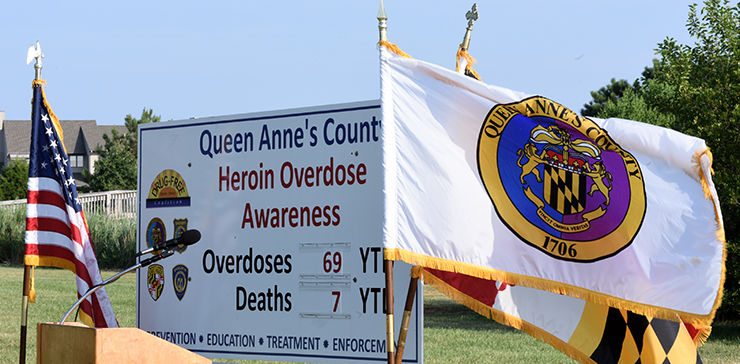Tech-Based Solutions for the Opioid Epidemic
July 09, 2019 by Melissa Crowe

Photo credit: U.S. Department of Housing and Urban Development/Flickr
California's opioid crisis hit hard.
For some regions within the state, overdose deaths are higher than the national average.
"There are more than 100 people dying of opioid overdose in the U.S. every day," says Dr. Sean Young, Ph.D., executive director of University of California Institute for Prediction Technology. "We need new technological solutions to be able to help address this problem."
That's why the University of California Institute for Prediction Technology (UCIPT) turned to the community — researchers, public health workers, students, and entrepreneurs — to help find a solutions to the crisis through the Opioid West Hack-A-Thon.
In the hackathon, participants worked together to come up with solutions to this growing epidemic. The event was a West Coast follow-up to the U.S. Department of Health and Human Services (HHS) National Opioid Symposium and Code-a-Thon, which took place earlier this year in Washington, D.C.
"Once we can predict something, we can develop technology-based interventions to change it," says Dr. Young.
The four winning teams created a model to predict opioid overdose using cannabis data, a model to predict where overdoses would have an outbreak, a recovery app using clinical trial data to improve addition treatments, and another developed an app to help medical providers and patients monitor opioid-based medication dosing called the iPill Dispenser.
"There are more than 100 people dying of opioid overdose in the U.S. every day. We need new technological solutions to be able to help address this problem." — Dr. Sean Young, Ph.D., executive director of University of California Institute for Prediction Technology
As an example of the caliber of the projects, iPill is a digital, biometrically controlled mobile app that dispenses pills only as prescribed, heralded as a 49-year update to child-resistant caps.
"There is a problem with unregulated pill distribution and people over giving them," says Stephanie Soliz, a research staff associate from the University of California Institute for Prediction Technology. "The team that developed iPill are finding a safe way to prescribe and dispense these opioids to patients, while also offering alternatives for pain management."

Photo credit: State Archive/Flickr
Twenty teams participated in four tracks:
- Developing applications for ethical and secure sharing of opioid-related data
- Designing personalized behavior change apps
- Prediction models and visualization tools to prevent addiction and overdose
- Prediction models and visualization tools to show integrative therapeutic approaches
They had access to 150 opioid-related datasets, as well as data on cannabis and other alternative treatment approaches and datasets from California agencies.
"I have a strong belief that bringing together diverse teams of engineers, technologists, public health people, patients and families affected by the crisis, [and] people understanding the ethical issues, can really contribute and help develop solutions that could go a long way in addressing this crisis," says Dr. Young.
UCIPT develops models, maps, and tools to help predict the spread of disease and other public health problems, says Dr. Young.
A Focus on Implementation
Developing sound, effective solutions is just one focus for this particular hackathon. Another priority is moving solutions from idea to policy.
Often, after a hackathon, people return to their everyday work and school routine, and the momentum from the event passes.
"We want to focus on implementation," says Dr. Young.
That means teams will continue working together after the event, with the goal of seeing their solutions used public health venues.
An advisory board made up of researchers and stakeholders from the federal, state, and regional level, as well as patients and families personally affected by opioids, was involved throughout, vetting teams, judging solutions, and providing mentorship. The board is ensuring that the winning ideas have a high likelihood of being implemented and will serve as champions for solutions, says Dr. Young.
In addition, support from the National Institute on Drug Abuse (NIDA), National Institute of Allergy and Infectious Disease (NIAID), and a grant from the National Institutes of Health's Helping End Addiction Long-term (HEAL) Initiative, helped event organizers study how hackathons can address public health problems. The funding provides mentorship to winning teams, and covers travel expenses to meet key stakeholders and attend conferences. The grant will also cover following up with hackathon participants to examine barriers to implementation.
The organizers measure the success of the event by the new ideas and insights it generates on the opioid crisis, as well as participants' continued engagement.
"There's always room for improvement and it's important to implement different tools and methods to address this problem," Soliz said. "In this event, people could bring in their own perspectives, experiences, and diverse backgrounds to build on each other's strengths."